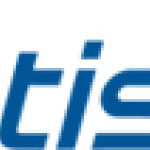- Settore: Telecommunications
- Number of terms: 29235
- Number of blossaries: 0
- Company Profile:
ATIS is the leading technical planning and standards development organization committed to the rapid development of global, market-driven standards for the information, entertainment and communications industry.
1. The management of security features and assurances through control of changes made to hardware, software, firmware, documentation, test, test fixtures, and test documentation throughout the life cycle of an information system (IS. ) 2. The control of changes--including the recording thereof--that are made to the hardware, software, firmware, and documentation throughout the system life cycle. 3. The procedure by which a system is managed throughout its lifecycle to ensure that modifications to the design and implementation are made in a controlled manner and that the level of security originally achieved is maintained. See also: Configuration Control.
Industry:Telecommunications
1. The magnitude of an electric, magnetic, or electromagnetic field at a given point. Note: The field strength of an electromagnetic wave is usually expressed as the rms value of the electric field, in volts per meter. The field strength of a magnetic field is usually expressed in amperes per meter Synonym radio field intensity. 2. The electric field strength in the horizontal plane.
Industry:Telecommunications
1. The linking together of interoperable systems. 2. The linkage used to join two or more communications units, such as systems, networks, links, nodes, equipment, circuits, and devices.
Industry:Telecommunications
1. In the Internet, an intelligent search tool that automatically seeks out relevant online information based on the user's specifications. Synonyms agent, bot, crawler, hotbot, infobot, information agent, intelligent agent, Internet search engine, knowbot, knowledge robot, personal agent, robotic librarian, search robot, spider, Web crawler, Web spider, wizard. 2. In artificial intelligence, an entity with the ability to sense its environment and to act in such a way or to affect that environment; typically knowledge-based entities that can communicate with each other through some message-passing scheme.
Industry:Telecommunications
1. The line enclosing the coordination area. 2. The perimeter of the coordination area.
Industry:Telecommunications
1. The introduction of data of one security security category into data of a lower security classification or different security category. . 2. Relative to numbering guidelines and FCC regulations, contamination occurs when at least one telephone number within a thousands-block of telephone numbers is not available for assignment to end users or customers. Blocks contaminated up to and including 10 percent are eligible for donation. For purposes of this provision, a telephone number is "not available for assignment" if it is classified as administrative, aging, assigned, intermediate, or reserved as defined in FCC rules (FCC 00-104, §52. 7 (h). )
Industry:Telecommunications
1. The independent variable used to express a function. Note: Examples of domains are time, frequency, and space. 2. In distributed networks, all the hardware and software under the control of a specified set of one or more host processors. 3. A unique context (e.g., access control parameters) in which a program is operating; in effect, the set of objects a subject has the privilege to access. 4. The set of objects that a subject has the ability to access.
Industry:Telecommunications
1. The improper routing of a call back through a switching center already engaged in attempting to complete the same call. 2. In secondary surveillance radar, the presence of false targets declared as a result of transponder interrogation by side lobes of the interrogating antenna.
Industry:Telecommunications
1. The formal authorization by the Departmental Security Officer for an individual to have access to classified information, following appropriate vetting. 2. An attribute of a subject that specifies the security classes of objects for which access rights may be granted See also: Lattice.
Industry:Telecommunications
1. The field distribution, in amplitude and phase, over the antenna physical aperture. 2. The phase and amplitude of the element feed voltages or the distribution of the currents in an array of elements.
Industry:Telecommunications
